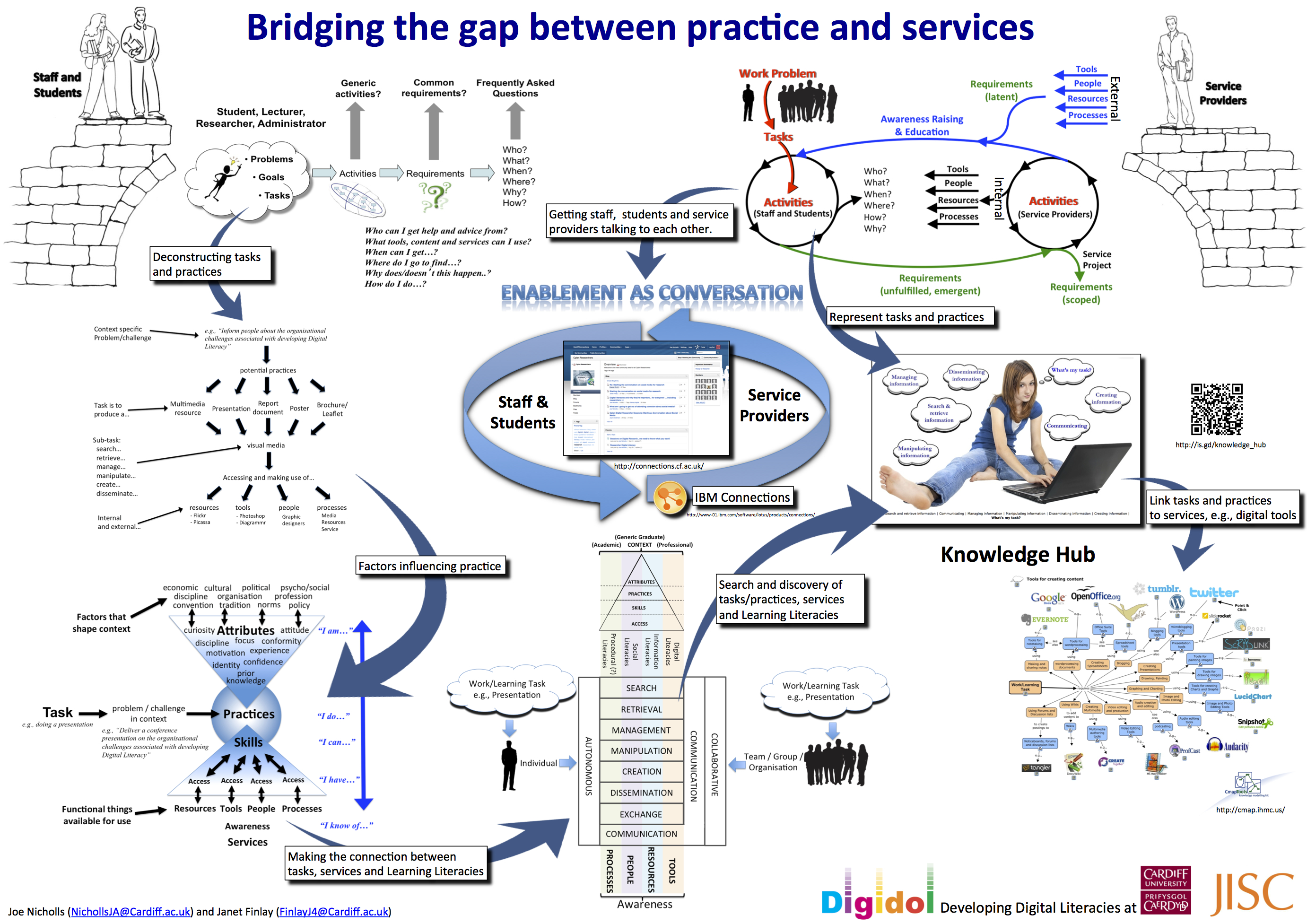We have developed a new poster for the forthcoming JISC learning and teaching expert group meeting – it represents our current thinking on bridging the gap between practices and services. It is quite information rich so you may want to zoom in by clicking on the image!
Tag Archives: conversation
Getting started with Digidol
Today marks two weeks since I started as interim project manager on the Digidol project and I am starting to get a handle on things so I thought it was a good point to reflect on my first impressions of the project, progress to date and where we are heading.
In terms of project management, things couldn’t have been made easier. When Joy went on maternity leave, she left things well organised and documented, making it straightforward to find everything and see what has been happening and who does what. This has made the first fortnight a lot more productive than it might otherwise have been so thanks Joy!
I have joined the project as it enters a new phase. Extensive baselining activities looking at the current extent of digital literacy among academics, students, admin and researchers is complete, providing a picture of a mix of both enthusiasm for and uptake of technologies. Digital literacy has been recognised at an institutional level as an important element and is embedded in core strategies as one of the essential “learning literacies” students and staff need to possess. An initial organisational model to support change management has been proposed. So far so good. The project is on target and there is the essential institutional will to see it succeed.
The new phase focuses on facilitating and supporting that process of change to enable staff and students to make appropriate use of technology to enhance their work practices. Facilitation is happening both through workshops and online resources but therein lies the challenge. Such support – whether provided in the short term by the project – or longer term by services – needs to be contextualised to practice in order to be meaningful and relevant – and digital literacy means being able to identify and exploit the right technology at the right time for the particular job. So traditional generic, technology-focused interventions are not enough.
Our challenge over the second phase of the project is therefore to develop a working and sustainable process that can be taken forward by our service providers to enable staff and student to understand when and how technology would make their work more effective and provide them with the support they need to be able to take it forward. We have started trialling a mixed-media workshop process, which combines short, focused face to face interactions and an online community to explore detail. We are also developing a resource bank, which can be accessed via multiple views to help to surface the possibilities offered by technology for different practices and tasks.
Attempting this for the whole institution and all the possible practice and technology combinations is not feasible so we are concentrating on illustrative exemplars: working with a handful of different disciplinary areas and focusing on a number of representative task areas (such as presentations, meetings and assessment). These will allow us to demonstrate proof of concept and evaluate our model and process.
All this is happening in the context of institutional change so we are mindful that we need to keep one eye on that and how it may change things for us. But all the signs are that the new leadership team will be supportive of our aims.
So an exciting time to join the project and I am looking forward to working with Joe and the team on the next phase.

